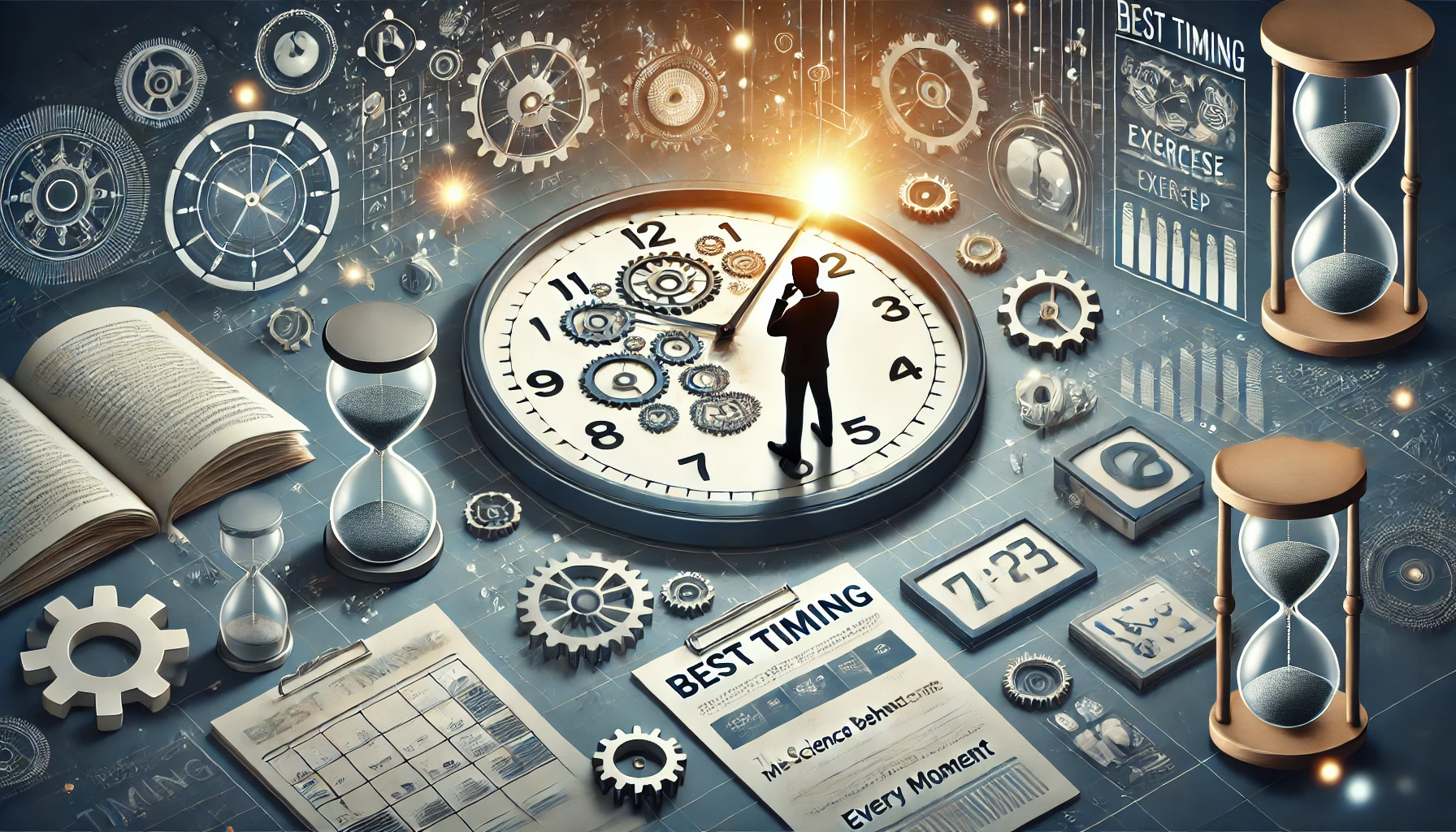Timing plays an undeniably crucial role in shaping our lives. Whether it’s deciding when to start a new project, when to make a big purchase, or even when to take a nap, the concept of “best timing” often influences our success, satisfaction, and well-being. In his book “When: The Scientific Secrets of Perfect Timing,” Daniel Pink argues that timing is not merely an art but a science—one that can be harnessed to improve our daily lives.
Pink’s exploration of timing spans various time scales, from daily rhythms to life-altering decisions. His findings underscore the importance of aligning our actions with our natural biological and psychological patterns, which can help us work smarter, live better, and ultimately make the most of every moment. However, it’s important to acknowledge that while much of timing can be controlled and predicted, factors like luck and randomness also play significant roles, particularly in major life events.
This article delves into the concept of “best timing,” exploring the scientific underpinnings that can help us make more informed decisions in our everyday lives. We will also incorporate various aspects of timing, from optimal moments for shopping and traveling to the best times to exercise, nap, and sleep.
Understanding the Science of Timing
Daniel Pink’s research highlights that timing decisions are deeply rooted in both physiology and psychology. The timing of certain actions, such as when to negotiate, learn, or exercise, can often be predicted by our natural biological rhythms, while other timing decisions are influenced by psychological factors, such as deadlines or social cues.
Timing can be categorized into three broad types:
- Biological Timing: These are rhythms driven by our body’s internal clock, such as the circadian rhythm that dictates sleep-wake cycles, hormone levels, and alertness. Aligning our activities with these rhythms can enhance productivity and well-being.
- Psychological Timing: This involves timing decisions influenced by human behavior and thought processes. For example, deadlines often create urgency, which can push us to take action at specific times.
- Environmental Timing: External factors like seasons, market trends, and cultural or social events also influence when certain actions are best taken.
Best Buy Timings and Shopping Strategies
One of the most common questions people ask is, “When is the best time to buy?” Timing is crucial when it comes to shopping, whether you’re aiming to snag the best deals on electronics, clothing, or household goods. The concept of “best buy timings” extends beyond the daily opening hours of stores and touches on seasonal sales, clearance events, and holiday promotions.
- Best Buy Timings Black Friday: Black Friday is often hailed as the pinnacle of shopping events, with retailers offering massive discounts on a wide range of products. The best time to shop on Black Friday is early in the morning, right when the store opens, to get the best deals before stock runs out.
- Best Buy Timings Today: Knowing the daily store timings can also make a difference. Shopping early in the day, especially during weekdays, allows you to avoid crowds and have access to fully stocked shelves.
- Best Buy Store Timings: Different stores may have varying operating hours, so it’s always best to check in advance, especially during special sales events.

Best Timing to Order Airline Tickets
Travel timing is another area where knowing the “best timing” can save money and reduce stress. The ideal time to book airline tickets has been a subject of much debate, but general patterns have emerged from industry research:
- Best Timing to Order Airline Tickets: Research suggests that the best time to book domestic flights is typically 1-3 months in advance, while international flights should be booked around 5-6 months prior. Mid-week bookings, especially on Tuesdays and Wednesdays, often yield better deals compared to weekends.
Optimizing Health and Fitness with Best Timing
Timing isn’t just about shopping and travel; it’s also crucial when it comes to health and fitness. Aligning physical activities with your body’s natural rhythms can significantly improve performance, effectiveness, and recovery.
- Exercise Timing Best Time Day: Studies suggest that exercising in the late afternoon or early evening is often the best time, as body temperature is at its peak, muscles are more flexible, and reaction times are quicker.
- Best Timing to Take Creatine: Creatine supplementation is most effective when taken post-workout, as muscles are primed to absorb nutrients and aid in recovery.
- Best Timing for Tanning: For those who prefer tanning naturally, the safest time to tan is before 10 a.m. or after 4 p.m. to minimize exposure to harmful UV rays, which are strongest between midday.
Perfecting Your Sleep and Nap Schedules
Proper sleep timing is essential for cognitive function, mood, and overall health. Understanding when to sleep and nap can help optimize your daily energy levels.
- Best Sleep Timings: The ideal sleep window is between 10 p.m. and 6 a.m., aligning with our natural circadian rhythm. Going to bed and waking up at consistent times every day supports better sleep quality.
- Best Power Nap Timing: A 20-minute power nap taken in the early afternoon, around 1-3 p.m., can help boost alertness and energy levels without interfering with nighttime sleep.
Finding the Best Timing in Professional Settings
In professional settings, timing can influence everything from project success to negotiation outcomes. Understanding the best times to make decisions, initiate meetings, or push deadlines can enhance productivity and results.
- Best Shot Timing Visual Cue 2k24: In the context of gaming, particularly in sports games like NBA 2K24, the best shot timing relies on visual cues from the game’s mechanics. Mastering these cues can significantly enhance your gameplay performance.
- Best Timing Light for Mechanics: Timing lights are essential for tuning engines, and using them at the right moment can ensure optimal performance and efficiency.
Conclusion: Mastering the Art and Science of Timing
Best Timing By understanding the best times to act, whether it’s shopping on Black Friday, booking a flight, exercising, or simply taking a nap, we can align our actions with the rhythms that govern our bodies and the world around us.
While some aspects of timing are beyond our control, like luck and randomness in major life events, the science of timing offers valuable guidance on the parts we can influence. Embracing these insights allows us to work smarter, live better, and make the most of every moment.
Whether it’s knowing the best buy timings, finding the perfect moment to order airline tickets, or understanding the optimal times for health and fitness activities, the key is to be informed and intentional. By mastering the timing of our actions, we not only enhance our efficiency and effectiveness but also enrich our overall quality of life.









